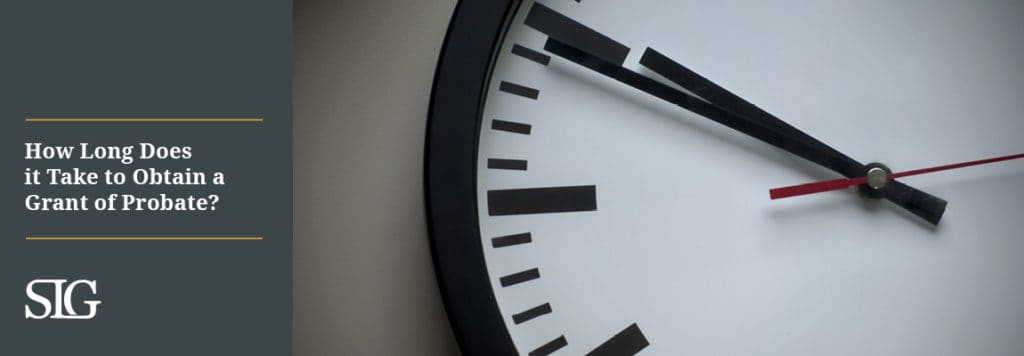
27 Jun How Long Does It Take to Obtain a Grant of Probate?
We often act as the executors of estates and/or as the lawyer for the executors of estates. One of the first questions we are usually asked is, “how long will take to obtain a grant of probate?” (If you haven’t already done so, check out our prior blog post titled, “What is a Probate?”)
The amount of time it takes to obtain a grant of probate depends on several factors, including but not limited to the following:
- The complexity of the estate;
- The number and location of the beneficiaries;
- The location and form of the assets (i.e. bank accounts, investments, shares, real property, etc.);
- Whether there are any legal challenges to the will; and
- The location of the Court Registry where the application for a grant of probate is submitted.
From the time the application for a grant of probate is submitted to the Court Registry, it can take six to eight weeks (depending on the Court Registry where the application is submitted) for the court to issue the grant, assuming that there are no defects with the application. However, before the application can even be submitted to the Court Registry, the executor must notify all beneficiaries (and any spouse or children not named in the deceased’s will) of the application and wait a prescribed number of days before applying to the court for the grant. In addition, the executor must identify and list the assets and liabilities of the estate. This usually involves writing to the financial institutions that the deceased dealt with and waiting for a response. These initial steps can take as little as a month where there are limited assets and the location of the individuals who are entitled to the notice is known and can take much longer where there are numerous assets/liabilities or where individuals must be located.
Once the application is reviewed, probate fees are paid (check out our prior blog post titled, “How Much Are Probate Fees?”) and the grant of probate is issued, the executor may begin paying out any debts of the estate and dealing with the accountant to obtain a clearance certificate from CRA. Once the executor is confident that all of the debts of the estate of been satisfied, the executor may begin distributing the estate assets in accordance with the deceased’s will. In some cases, it may be possible to make an interim distribution of assets but it is important that executors obtain proper advice prior to releasing funds.
This is a brief summary of the general timelines when obtaining a grant of probate. It may take longer to deal with the deceased’s will, especially if there are individuals who contest the will. If you have any questions regarding an estate located anywhere in British Columbia please do not hesitate to contact Sitka Law Group. We are located in Victoria, B.C., near the border of Saanich and Oak Bay.



